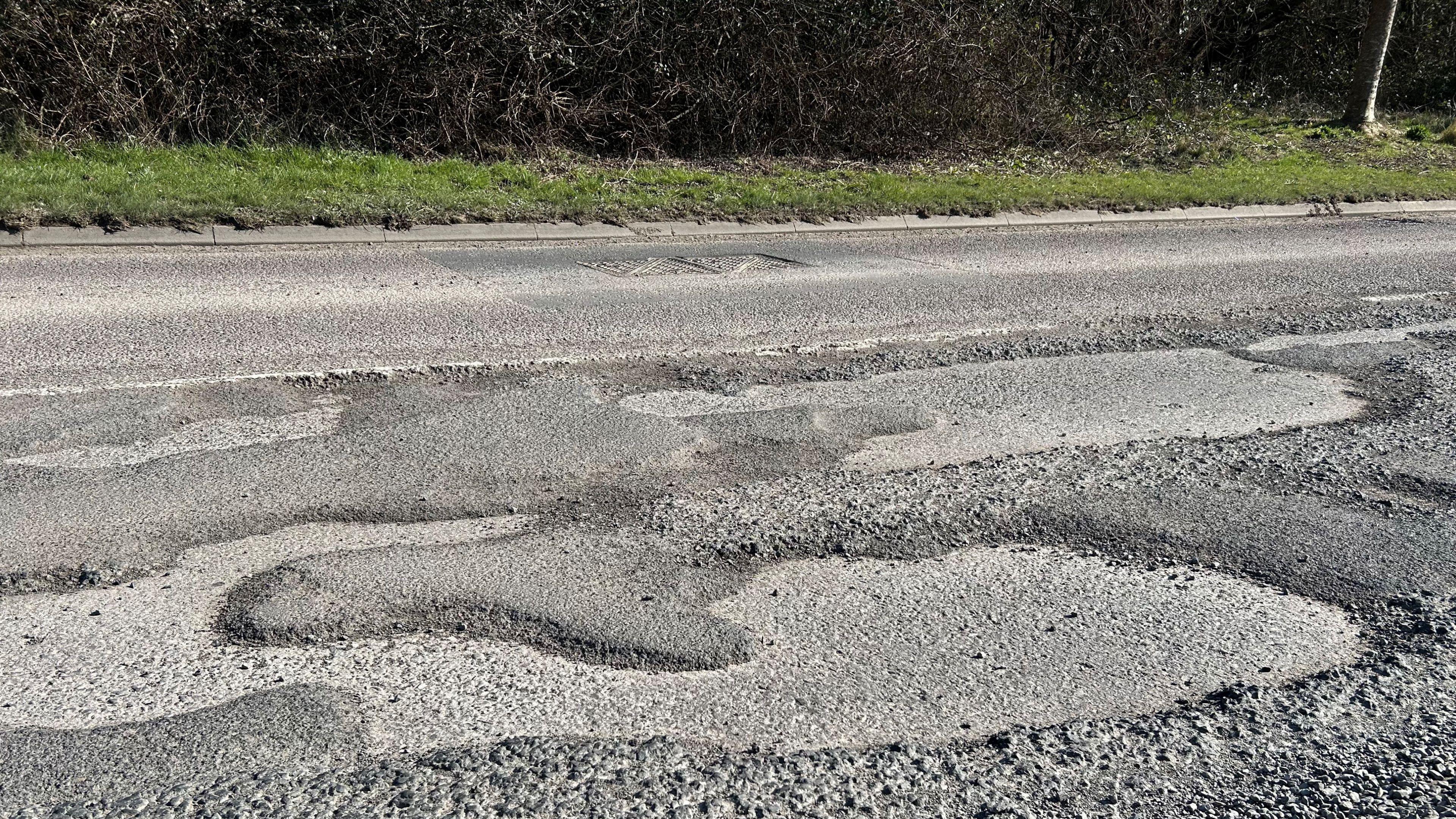Residents say kerb is causing a 'hubcap graveyard'
Listen: Salisbury's ‘killer kerb’
- Published
There are no safety concerns over what locals have described as a "killer kerb" that is creating a "hubcap graveyard", according to a council.
The 35cm (13ins) trief kerb in Fisherton Street, Salisbury, is designed to stop vehicles mounting the pavement.
Resident Tracy Beneke said she had witnessed it being hit several times a day, with the kerb now so notorious it has its own Facebook page.
Wiltshire Council's cabinet member for highways Martin Smith said the kerb had always been there but was recently renewed, adding the safety of pedestrians was the "key concern" at the junction.
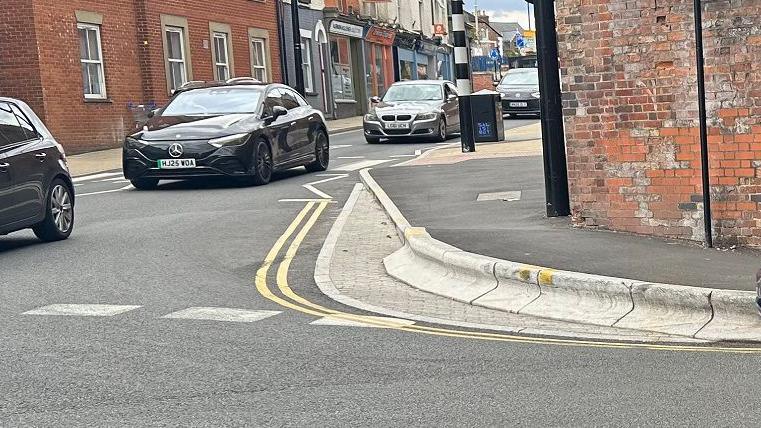
The kerb is designed to stop vehicles from mounting the pavement
Ms Beneke said the kerb was hit "several times a day every day", adding: "There used to be a hubcap graveyard just on the corner.
"I think you could have built a whole new car out of the pieces we've seen."
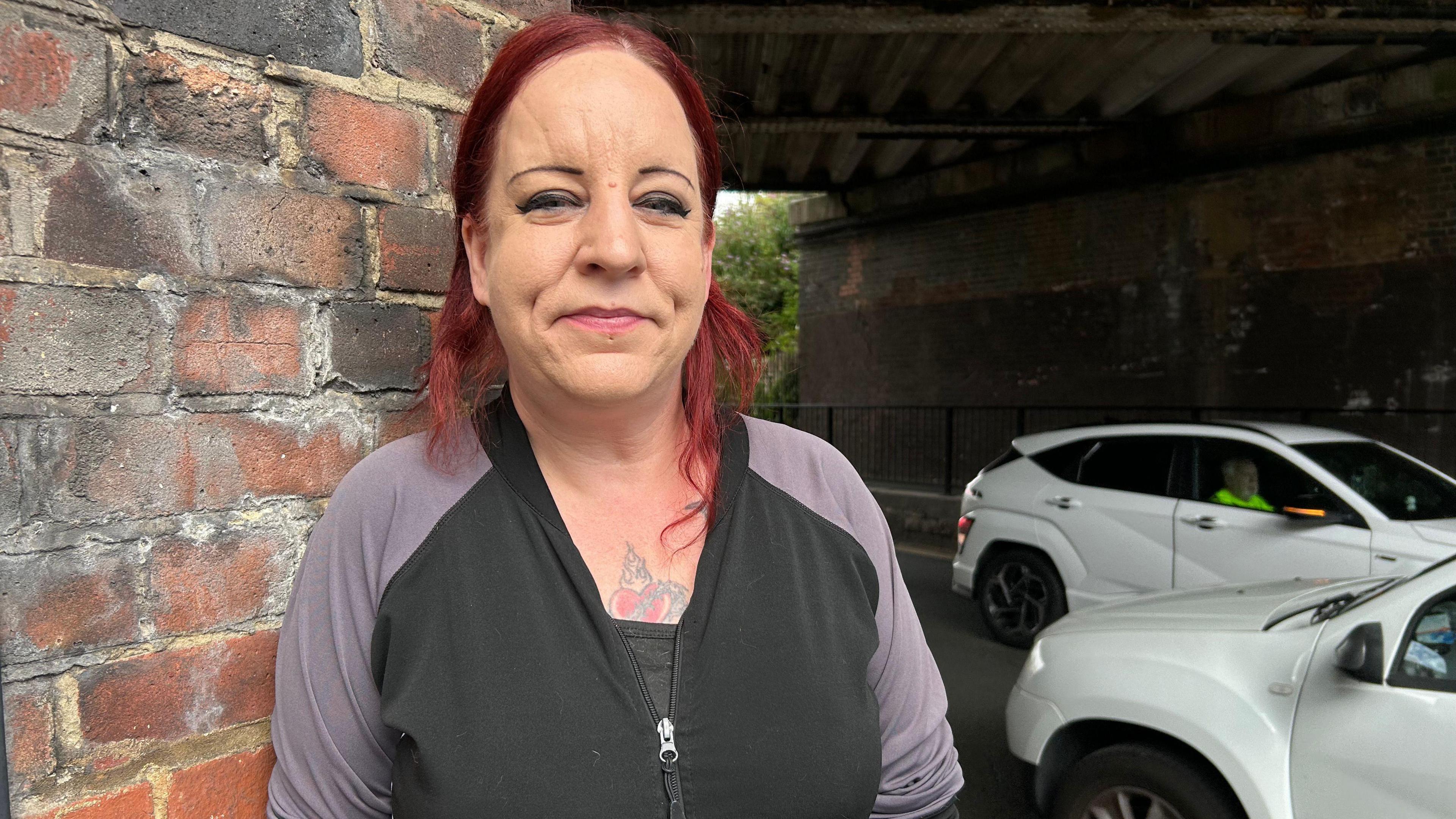
Tracy Benecke lives close to the kerb and said she had seen lots of cars get damaged by it
The kerb had been listed as a tourist attraction on Google Maps and had multiple Facebook pages dedicated to it.
Chad Lansdale set up one of them and said people have been divided in their opinions about the kerb.
"You've got people saying it shouldn't be here. On the flipside, you have people saying 'it's a kerb, it's your own fault [if you hit it]'."
He added: "There's big chunks taken out of it which would take quite a bit of force. People aren't just tapping it."
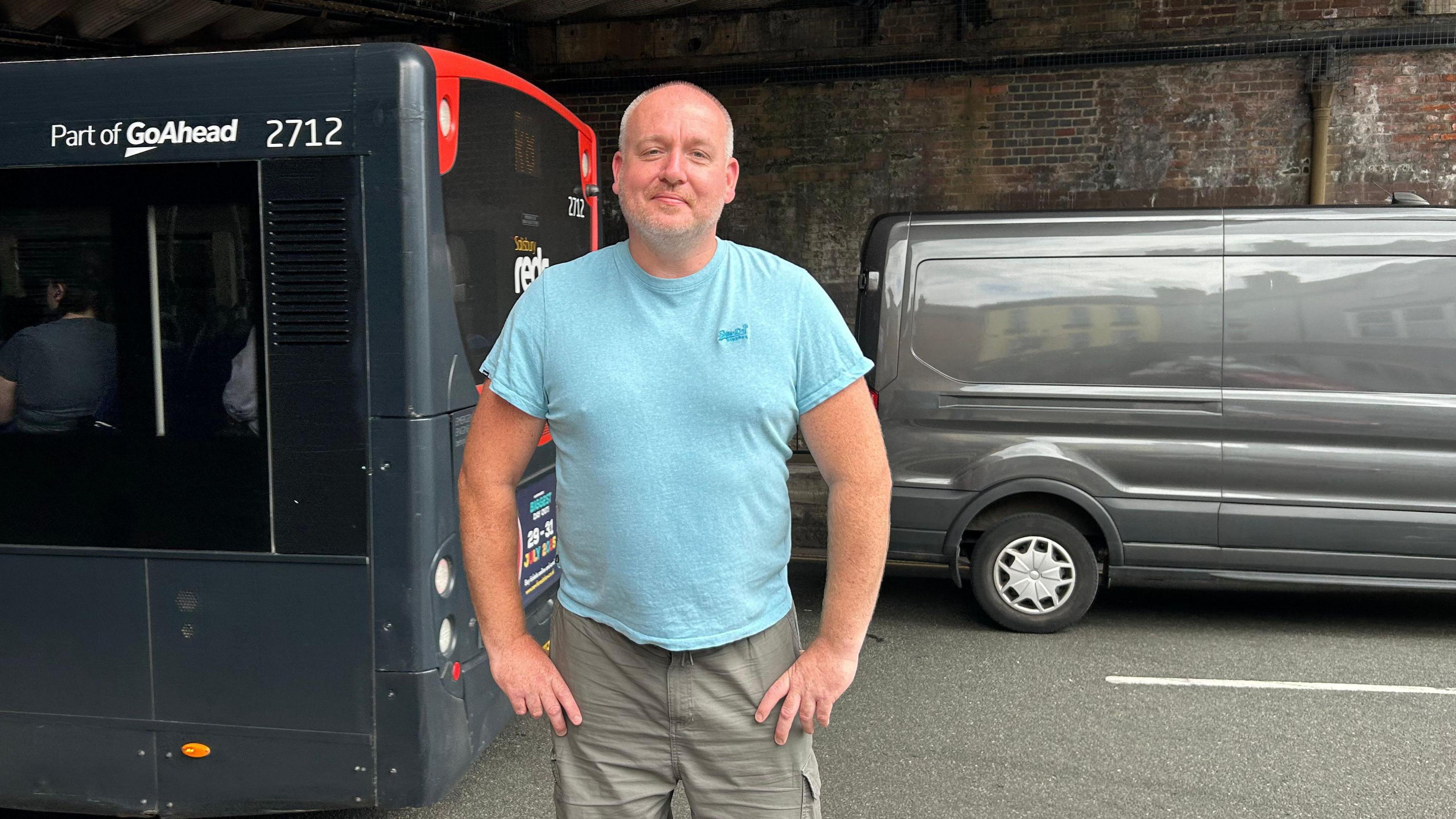
Chad Lansdale said people on social media are "divided"
Mechanic Geddy Porter has fixed damage on cars which have hit the kerb and said repairs can cost thousands of pounds.
"We've had a few customers who have done the same thing," he said. "All on the bottom edges of the cars."
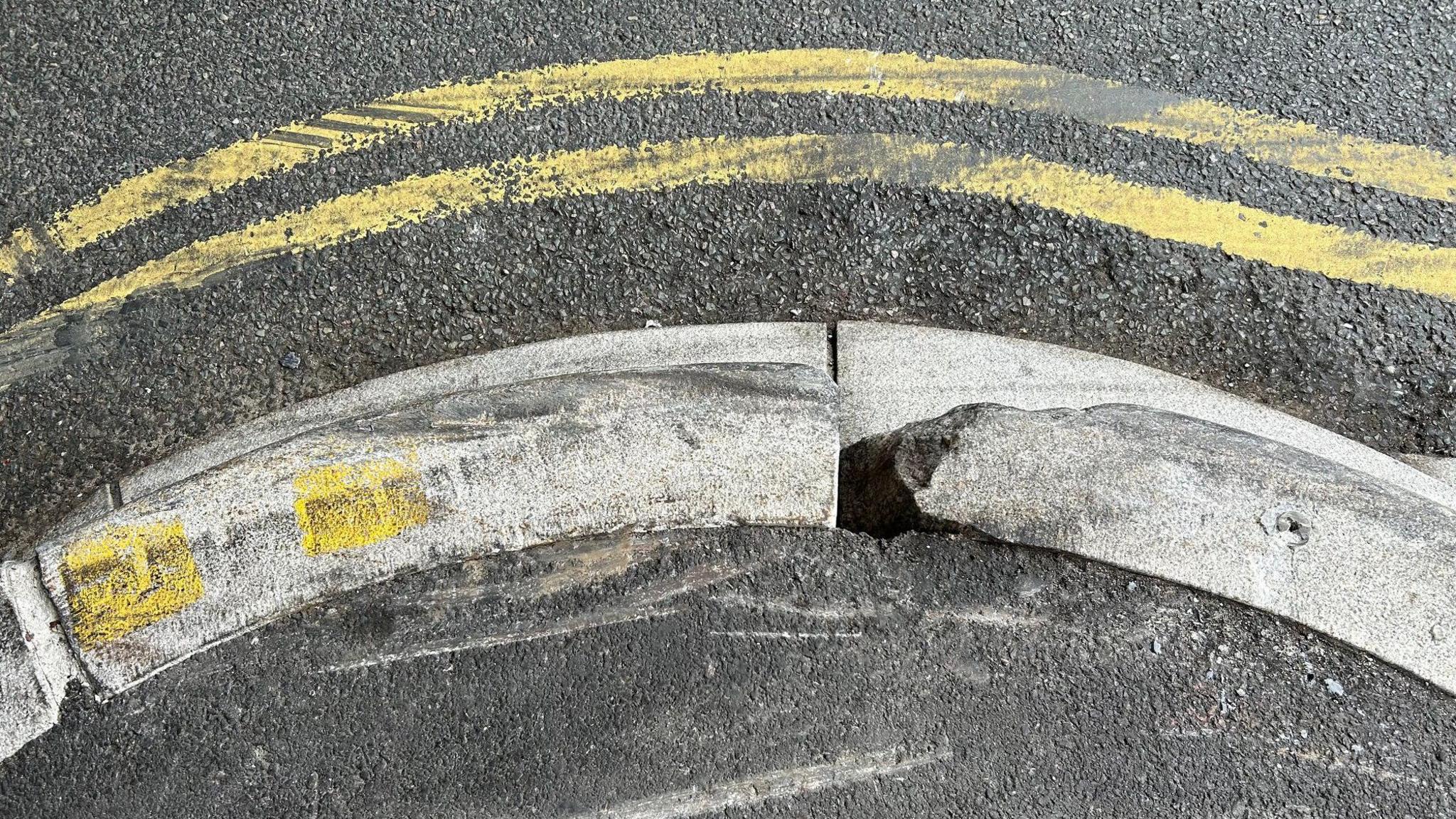
The kerb has been damaged with "chunks" missing from it
Driving instructor Andy Woodger said driver error is behind the issue.
"Don't put your car where your eyes have not been first," he added.
"The way I would teach all my pupils is as they approach the give way to make the left turn is to keep the kerb in view," he said.
"Either aim your door mirrors in line with the kerb or keep an eye on the kerb in your passenger side window."

Driving instructor Andy Woodger said driver error is the cause of incidents
The kerb is on a junction near Salisbury Railway Station which the council said was used by 11,000 motorists every day.
Mr Smith said the trief kerb has been there a long time, but was renewed in 2024 to create a welcoming environment for pedestrians.
He said a safety audit had been completed and there were no concerns about the position of the kerb for vehicles.
"Trief kerbs are higher than a traditional kerb and are designed to prevent vehicles mounting the pavement and hitting pedestrians," he added.
"They are an approved product for use in the public highway, used throughout both the county and country."
Get in touch
Tell us which stories we should cover in Wiltshire
Follow BBC Wiltshire on Facebook, external, X, external and Instagram, external. Send your story ideas to us on email or via WhatsApp on 0800 313 4630.
Related topics
See also
- Published22 February 2024
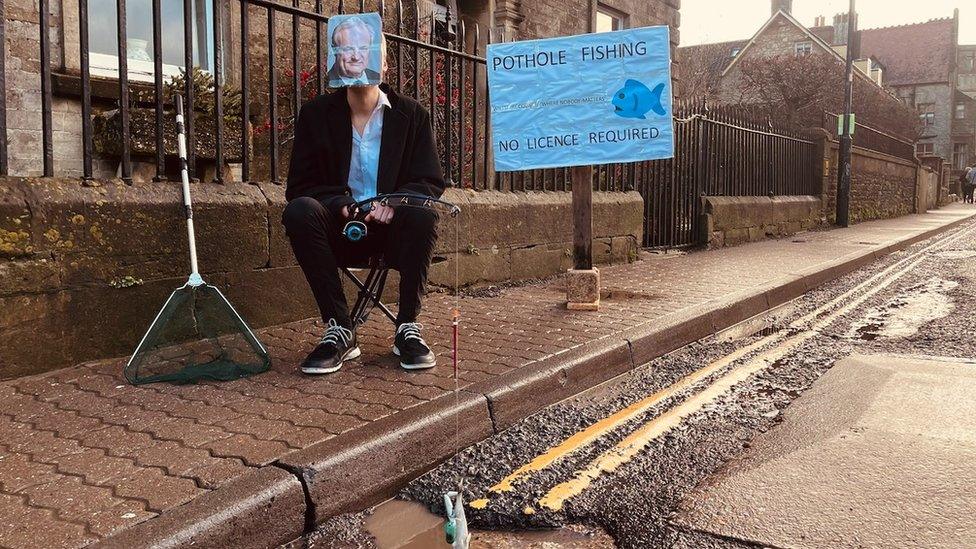
- Published15 May 2024
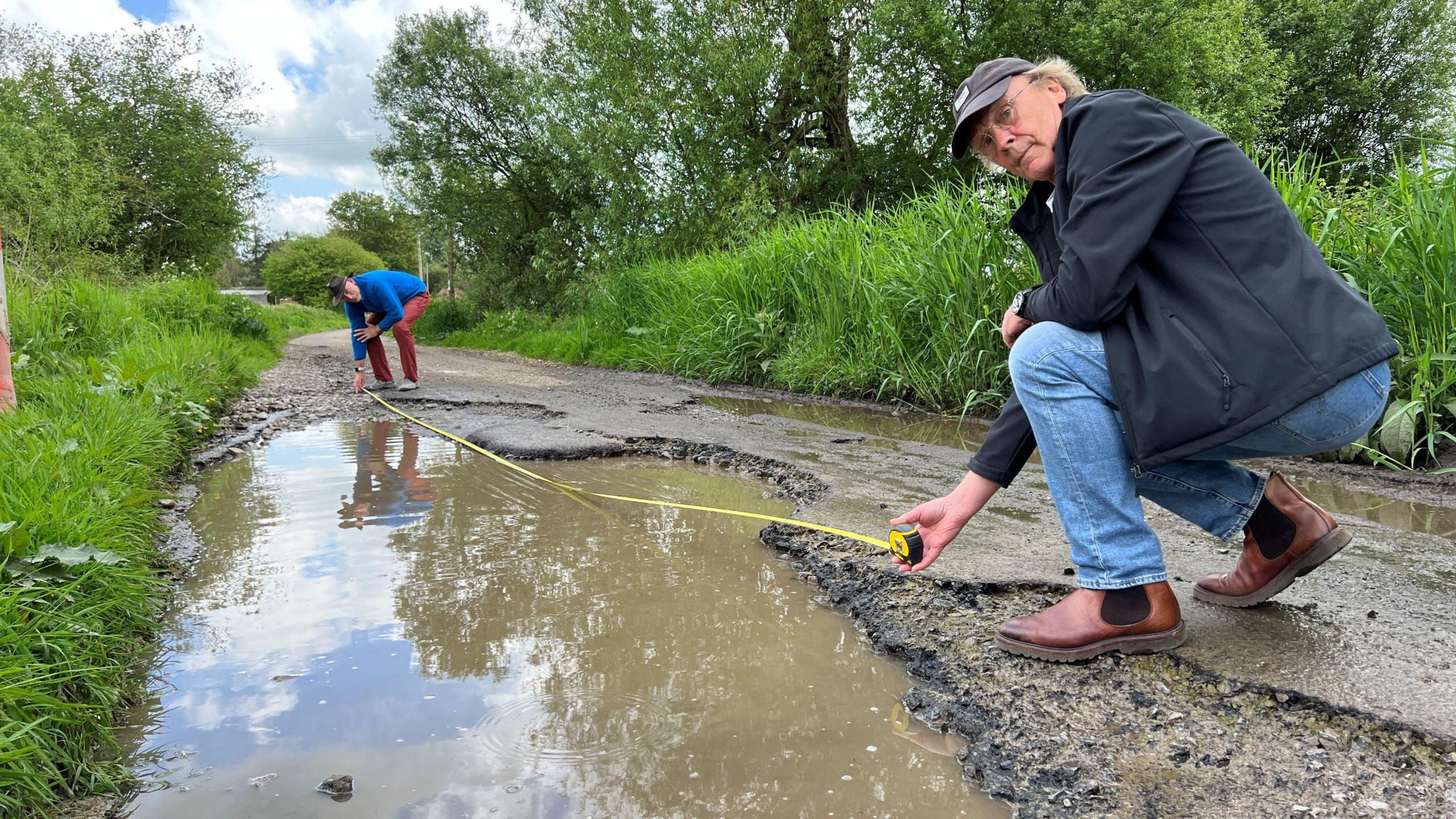
- Published11 March
